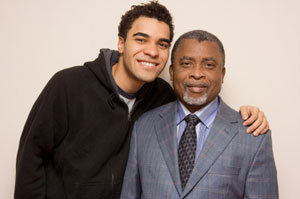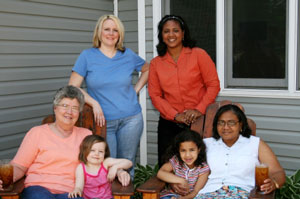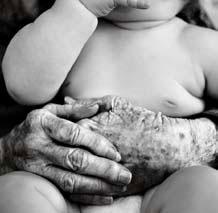
Fourth Of July Meaning
July 1, 2010
Electing The Best Leaders
September 22, 2010Intergenerational Divide Is Costly
Share this article on social networks
By Janice S. Ellis, Ph.D., Kansas City, MO –
With unsurpassed technological advances, and major breakthroughs in medicine and health, there is also growing unconcern among and between generations about one of our most sacred institutions – our republic, our democratic form of government.
With the election of President Barack Obama, we witnessed an unprecedented level of involvement of young people, ages 18-29. However, that level of involvement in 2008 was the exception. The divide between candidates for president and young voters over the decades has been deep and wide. Fewer than one in ten voters in that age category bothered to vote during primary elections in most states. When 18-year-olds first received the right to vote in 1972, more than 52 percent voted in the presidential election. This was good, but the percentage declined precipitously in elections since then.
So what has happened during the last four decades?
Intergenerational Divide Is Costly

Intergenerational divide is costly
Reasons offered for this inter-generational divide on the political front are ones that we all have heard: a) Candidates ignore young voters because they do not vote anyway; b) Unscrupulous politicians turn young people off. However, do those reasons fully answer the question? Is there a cause even more basic and entrenched than that?
Several years ago, the non-partisan research group, The Third Millennium, asked voters in that same age group why they were not engaged in the electoral process. Two of the most disturbing reasons the survey found for this pervasive unconcern among young people were lack of time and lack of interest. Of those surveyed, some said they did not have the time to vote, but most said they simply were not interested.
Did not have time? Simply, not interested? With all the time saving inventions and communications technology that keeps us informed 24/7, how can this be? Do not have time? Simply, not interested? Yes. These questions warrant repeating.
For those of us who are now baby boomers – many of whom were reformers, activists and certainly engaged – we must wonder what will be the nature and quality of government should we live to become octogenarians and centenarians? Intergenerational divide is costly.
If we fail to stem this growing gulf of disinterestedness, in the long term, where will it leave future generations? America?
It is easy to say the fault lies with suspect politicians and a campaigning process that is often insulting and out of control. We can say such indifference is due to the over emphasis on self-actualization at the expense of community well-being. But what are we, the generations that have benefited and continue to benefit from this great democracy, doing to preserve its most sacred tenets within our families?
We have managed to get away from lessons learned, both historical, and those that are just common sense. Values and a way of life just do not preserve themselves. They are not self-perpetuating.
We know that the laws, principles, mores, traditions, and preservation of values within any society require deliberate and methodical passage from one generation to another. We learn this in schools; practice it in the daily activities of governmental, economic, religious, and social institutions.

Staying connected across generation is so important.
In the most ideal sense, the interweaving of these threads that make up the very fabric of a healthy and thriving society should be as much a part of the family dialogue as talking about our next of kin, as searching for our roots – genetic and otherwise. We go to extreme lengths to equip our progeny in the name of longevity and immortality when it comes to family matters. What about society sustaining matters?
Are we bothering to pass on to our children the importance of what they must do to preserve our democratic way of life? If we are not, it begs a number of questions. First, among them: What will it matter if we achieve the most technological advances, find cures for the most dreadful diseases, yet cease to be a civil, caring and democratic society?
This is the real potential risk if we continue to ignore the intergenerational divide occurring in our political process, and fail to do something about the reasons causing it.
Do not self-actualization and preserving democratic practices go hand in hand?
The late and longest serving United States Senator from Virginia, Robert Byrd, wrote a book a few years ago, Losing America. In it, he chronicles how we are ignoring and compromising the values, principles, and practices that make America. Even worse, we are failing to be deliberate about passing them on. He warns of the impending consequences if we do not get off this slippery slope. It should be required reading for all of us.
The intergenerational divide is costly in so many ways.
Edited and Reprinted with Permission of USAonRace.com
Share this article on social networks
Related posts:
No related posts.


1 Comment
So true. Thanks, Dr. Ellis. Loved your book, too.